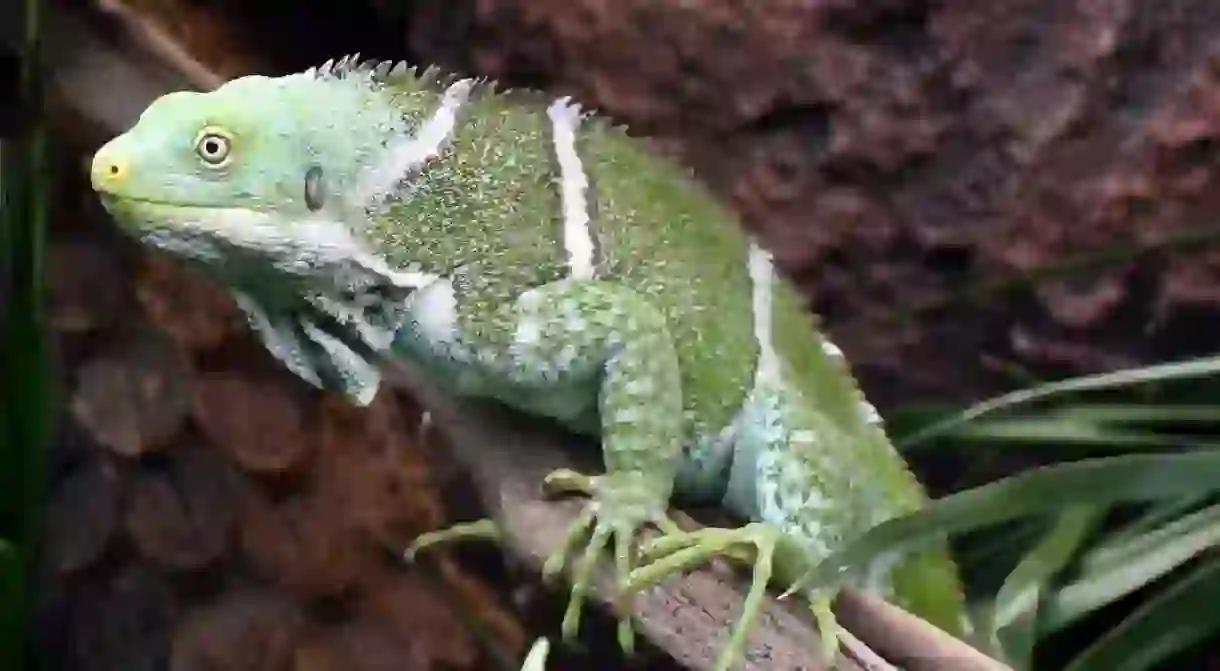An Alternative Traveler's Guide to Fiji

The Fiji Islands might be synonymous with snorkelling, diving and palm-tree-lined beaches, but there are plenty of other activities to be enjoyed. Step outside the expensive resorts and discover the cultural experiences and natural adventures that Fiji has to offer.
Discover the wildlife at Kula Eco Park
The Kula Eco Park on Fiji’s Coral Coast is a captive breeding center for creatures such as the crested iguana and peregrine falcon, and it’s the perfect place for an educational day out for children and adults alike. Wander through the forest to spot iguanas, peacocks and some of Fiji’s native birds among other tropical wildlife. The trained personnel can assist you in holding a live iguana or letting a snake slither up your arm, while the park’s newly-opened zip-line trail means thrill-seekers have the opportunity to fly through the forest.

Explore the Cannibal Caves
An ideal way to explore Fiji’s caves is to go on an off-road cave safari. Cross the Sigatoka River before heading inland and learn about the history of cannibalism in the Naihehe Cave, Fiji’s largest cave system. Fun fact: the cave still contains a cannibal ritual platform and oven.
Celebrate Diwali
With Fijian-Indians making up around 40% of the population, the Hindu Festival of Lights, Diwali, is a major celebration in Fiji. Hindus adorn their shop buildings and homes with fairy lights, partake in daily prayer and worship events, and fireworks go off every night during the weeks surrounding this late-October event.

Visit the Fiji Museum in Suva
Discover Fiji’s varied and extensive history at this small museum in Suva, with artefacts dating back 3700 years. Here you can learn more about Fiji’s biodiversity and the early prehistoric Lapita culture, and read about the nation’s rich maritime history, local traditions, art and culture.
Relax at the Sabeto mud pools
Head to the Sabeto mud pools and hot water springs for a natural spa day. Cover yourself from head to toe in therapeutic mud, let it dry, then wash it off to reveal silky, smooth skin. Finish up with a relaxing soak in one of the hot water springs, each of which has a different temperature. The mud baths are an ideal option for an overcast or slightly drizzly day.

Take a walk through the Garden of the Sleeping Giant
The Garden of the Sleeping Giant is a horticultural secret in the South Pacific filled with lush plants, tropical trees and tranquil lily ponds. Step into this quiet garden park – home to over 2000 types of orchids – and take a stroll over the boardwalks through the native forest, or enjoy the sound of birds while resting on a bench.
Marvel at the Sri Siva Subramaniya temple
Visit the largest Hindu temple in the Southern Hemisphere, located in Nadi. Stand in awe of the Dravidian architecture, the incredible detail, and colorful carvings both inside and outside this stunning temple dedicated to the deity Murugan. Keep in mind, the dress code is strict: no skirts, shorts or singlets for men or women, so make sure you are dressed appropriately before entering.

Visit the Sigatoka Sand Dunes National Park
Established in 1987, the Sigatoka Sand Dunes National Park is a national heritage and local treasure. Here you can visit archeological sites and view ancient artifacts from the early Lapita people that were once situated in the region. Pro tip: it’s best to complete the walk early in the morning to avoid the tropical midday heat.
Drive through the Nausori Highlands
The Nausori Highlands offer some of the best views of the wider Nadi region and Mamanuca Islands, and Viti Levu’s dramatic volcanic landscape and incredible rock formations are well worth exploring. It’s best to hire a four-wheel drive however, as the further inland you go the more winding and rugged the roads become as they turn to gravel. Travel through some of the traditional Fijian villages, wave to the children looking out and don’t forget to say “Bula!” (the Fijian greeting) out the windows as you drive by.














